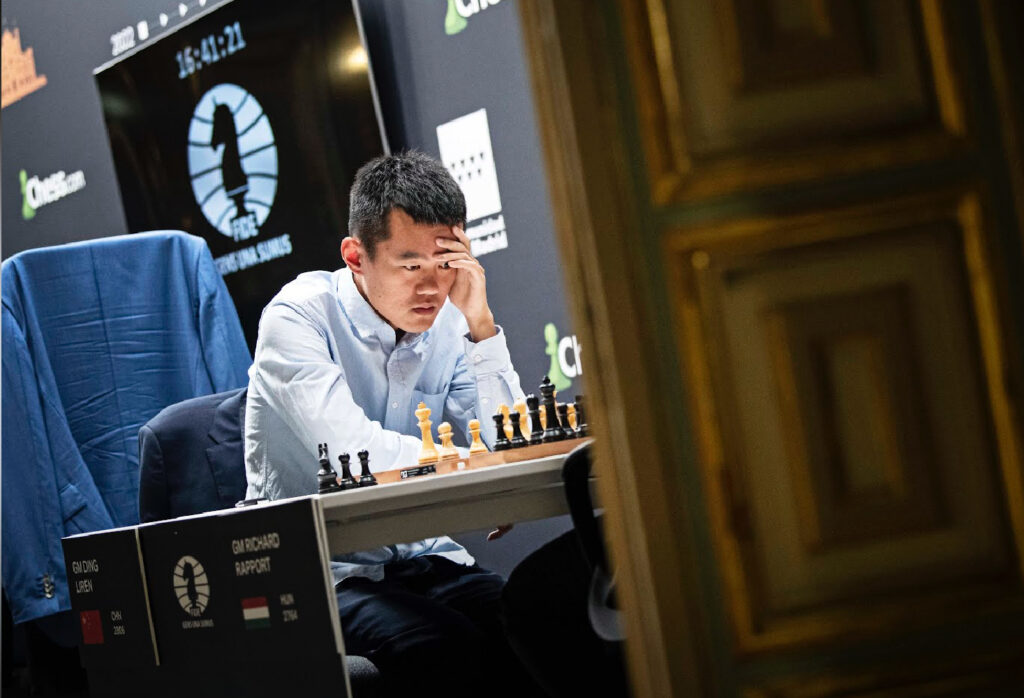
Ding Liren’s ascent to the pinnacle of chess represents a significant cultural and historical moment. Hailing from Wenzhou, a city often referred to as “chess city” in China, Ding’s journey from a local prodigy to the World Chess Champion has intertwined personal excellence with the growing global prominence of Chinese chess. His victory in 2023 shattered long-standing norms in the chess world and positioned him as a central figure in the sport’s evolving narrative.
Chess City: The Wenzhou Legacy
Wenzhou, a bustling city in southeastern China, earned its reputation as a chess hub thanks to its passionate community and robust support for the game. For decades, Wenzhou has nurtured chess talent through its schools, academies, and a deeply ingrained love for strategy.
The city’s culture, which values intellectual pursuit and discipline, laid the foundation for producing players like Ding Liren. With local tournaments and chess clubs proliferating, Wenzhou became a fertile ground for players to sharpen their skills. Ding, who grew up in this environment, benefited from a chess ecosystem that valued perseverance, study, and innovation.
The Rise of Ding Liren
Born in 1992, Ding was introduced to chess by his father. By the time he reached his teenage years, he had already established himself as a dominant force in Chinese chess. His international breakthrough came in 2009 when he won the Chinese Chess Championship as a teenager, signaling the arrival of a new generation of talent.
Ding’s playing style matured rapidly, combining precision with creativity. His famed 100-game unbeaten streak in classical chess remains a testament to his consistency and resilience. The streak was no fluke—it was the product of years of disciplined preparation, aided by advances in chess software and his meticulous study of opponents’ games.
Historicism Meets Modern Chess Trends
Ding’s success is deeply rooted in a respect for the history and traditions of chess, but it also embodies the sport’s contemporary evolution. Today, chess preparation often includes the use of AI-driven tools like Stockfish and AlphaZero, which help players uncover obscure opening lines and refine strategies. Ding has adeptly combined these modern tools with classical principles, creating a hybrid style that emphasizes adaptability and precision.
His 2023 World Championship win against Ian Nepomniachtchi showcased this blend. In a dramatic match filled with twists, Ding used unconventional openings and complex middle-game tactics to unsettle his opponent. The tiebreaker games were particularly nerve-wracking, but Ding’s calm under pressure highlighted his mental fortitude—a quality increasingly vital in modern chess, where the psychological battle is as important as the tactical one.
The World Championship: A Turning Point
The World Chess Championship is an event steeped in tradition. For over a century, it was dominated by Western players, with occasional interruptions by Soviet and post-Soviet legends. Ding’s victory marked a seismic shift. It wasn’t just a win for China—it was a win for diversity in chess. His achievement symbolized the globalization of a game once concentrated in Europe and the Americas.
The championship itself was a spectacle. Ding entered as an underdog against Nepomniachtchi, a seasoned competitor. Yet, his ability to stay composed under immense pressure turned the tide in his favor. The decisive final game, where Ding opted for a bold pawn sacrifice, exemplified his risk-taking approach—a hallmark of his personality and a growing trend in modern chess.
China’s Chess Renaissance
Ding’s success is part of a broader chess renaissance in China. For years, the Chinese Chess Federation has invested heavily in nurturing talent, creating a pipeline of strong players who can compete on the world stage. Before Ding, players like Hou Yifan, the youngest female Grandmaster in history, paved the way for China’s rise in the chess world.
Ding’s championship win has already inspired a new wave of young players in China. Chess clubs report increasing enrollment, and online platforms have seen a surge in Chinese users. With chess becoming more accessible through digital tools, the next generation is poised to build on Ding’s legacy.
Prevailing Trends in Chess
Ding’s career reflects broader trends shaping the chess world today. The rise of online platforms like Chess.com and lichess.org has democratized access to high-level play, enabling players from all over the globe to learn and compete. This shift has leveled the playing field, allowing talents from non-traditional chess countries to emerge.
Additionally, AI tools have redefined preparation. Players now spend hours analyzing engine-generated lines, making games more precise but also more complex. However, this reliance on technology comes with challenges, including the risk of burnout and the loss of creative flair. Ding has managed to balance these elements, blending AI-driven preparation with his natural intuition.
The mental health of chess players has also become a critical conversation in recent years. The pressure of constant competition and the solitary nature of the sport can take a toll. Ding has been open about his struggles, particularly during the pandemic, when isolation affected his motivation. His honesty has helped destigmatize mental health issues in chess, setting a positive example for others.
Ding’s Legacy and the Future of Chess
Ding Liren’s journey is far from over, but his legacy is already cemented. As the first Chinese World Chess Champion, he has broken barriers and redefined what is possible for players from non-Western countries. His success underscores the importance of cultural diversity in chess, proving that talent knows no borders.
Looking ahead, Ding’s influence will likely extend beyond the board. His quiet determination, strategic brilliance, and humility make him an ideal ambassador for the sport. With more players inspired by his example, the future of chess looks brighter than ever.
Impression
Ding Liren’s story is one of perseverance, innovation, and cultural pride. Wenzhou’s “chess city” legacy provided the foundation for his rise, but it was his hard work and adaptability that propelled him to the top. As chess continues to evolve, blending historicism with modern trends, Ding stands as a symbol of its timeless appeal.
For fans and players alike, Ding’s triumph is a reminder that chess is more than a game—it’s a global language, a test of human ingenuity, and a celebration of cultural diversity. In Ding Liren, we see the best of what chess has to offer: a bridge between the past and the future, anchored by the present brilliance of a true champion.
No comments yet.








